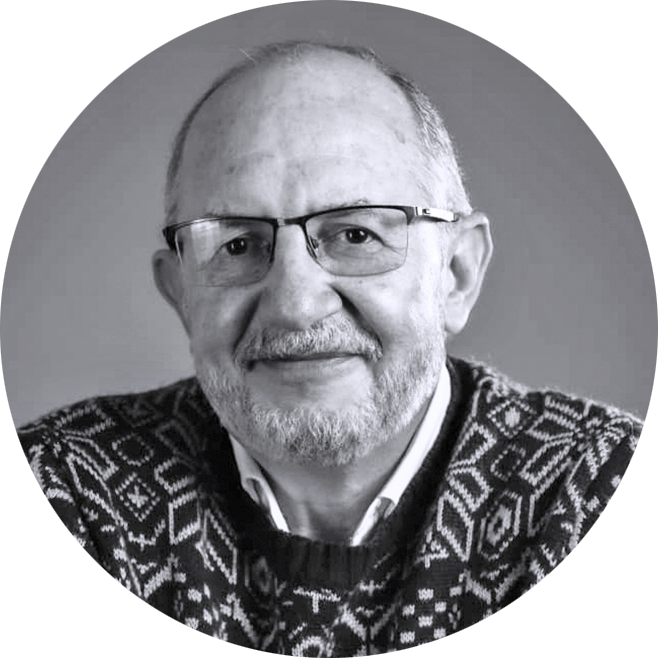
Alejandro Álvarez Gallego Published column
| An opportunity for Higher Normal SchoolsAt this time, the reform of Law 30 becomes an opportunity for the State to recognize Higher Normal Schools (Escuelas Normales Superiores – ENS) as Higher Education Institutions. In 1996, as a transitory article from Law 115 of 1994 was being developed, Ministry of Education issued the 709 Decree of 1996, according to which Normal Schools became Higher Normal Schools. Those ones looking for this recognition had to create two more years of post-high school, known as Supplementary Training Programs (Programa de Formación Complementaria – PFC). Normal Schools that met the requirements set forth it and stablished a covenant with a Faculty of Education would become ENS. However, they were not recognized as Higher Education Institutions. Since then, they are in a that no Government had wanted to solve. The consequences of this situation are significant. PFC teachers don’t know what employment regime they belong to, new ENS students don’t have the benefits that university students or high school students have, graduates who want to continue a professional career are not recognized those two additional years, not even in the bachelor’s programs, with which they have covenants and in most universities, only one of the four semesters they had completed is validated. There are 137 Higher Normal Schools distributed in 29 departments of the country. 129 of them are public and 8 are private. The 87% are located in small municipalities, with less than 100,000 inhabitants. According to data from the Student Enrollment System (Sistema de Matrículas Estudiantil – SIMAT), in 2021, there were 204,524 students in the ENS, of which 56% were women. About 12,000 were in the Supplementary Training Program (post-high school years 12 and 13). More than 80% lived in strata 1 and 2. After 1994, these schools have been intervened by different regulations to regulate their work, but without guarantees of budget conditions, autonomy and mainly without a solution for their legal status, as observed in Decree 4790 of 2008, which establishes the basic quality conditions of the supplementary training program of the higher normal schools and other provisions. Like Higher Education Institutions, they began to be intervened with the regulation logics, being overloaded with administrative tasks to be fulfilled in order to obtain qualified records and survive in the system, but with the disadvantage of not belonging to it. In 2015, Decree 2381 was issued modifying the verification process of quality conditions for ENS supplementary training programs. Finally, the Decree 1236 of 2020, which regulates their operation, structure, organization and routes of pedagogical and administrative support by the education secretariats. This exhausting normative journey must cease so that pedagogical richness from their centuries-old tradition can be spread and which is based on the training of teachers with high component of practical learning, through their own preschool and primary schools, formerly known as annexed schools. In addition, they continue studying pedagogy and didactics in a historical perspective and are still deeply rooted in their regional cultures. They are usually held in high esteem and valued by communities, especially where there are no other options for young people to continue their studies after high school. A rural approach is their main value: in the widest sense of meaning, ENS are committed to this world by tradition and by rule. Thus, having a potential for a new education policy that goes for a comprehensive rural development turning them into the educational, cultural and social epicenter that claims peasant and ancestral worldviews. As no other public institutions, ENS are rooted in this rural world. The training level is demanding and still preserves the idea of arising the sense of belonging and pride in being teachers. Those ones who manage to enter a degree program in some of the country’s capitals are stand out among their high school graduate classmates due to their level of training; they express and write better and, mainly, have a clearer vision of what their career means. At the end of the two first years (year 11), and before to start with the PFC, ENS students take Saber 11 tests and score 10 point over the national average. Then, at the end of the PFC, they take the tests for graduates of technical and technological institutions scoring 3 point over the global performance. For these reasons, it would be unforgivable that in this new Higher Education Law that is projected in the short term, ENS should be denied the opportunity to obtain recognition as Higher Education Institutions. It can also be established that ENS offers bachelor’s degrees or could serves as headquarters for other universities offering these bachelor’s degrees, thus guarantying their graduates to obtain a degree in two years. It would be the first step to have a Teacher Training System where basic, continuing and advanced training is articulated, which contributes to the dignity of teaching profession. Leer columnas anteriores | |
 July 22, 2023
July 22, 2023